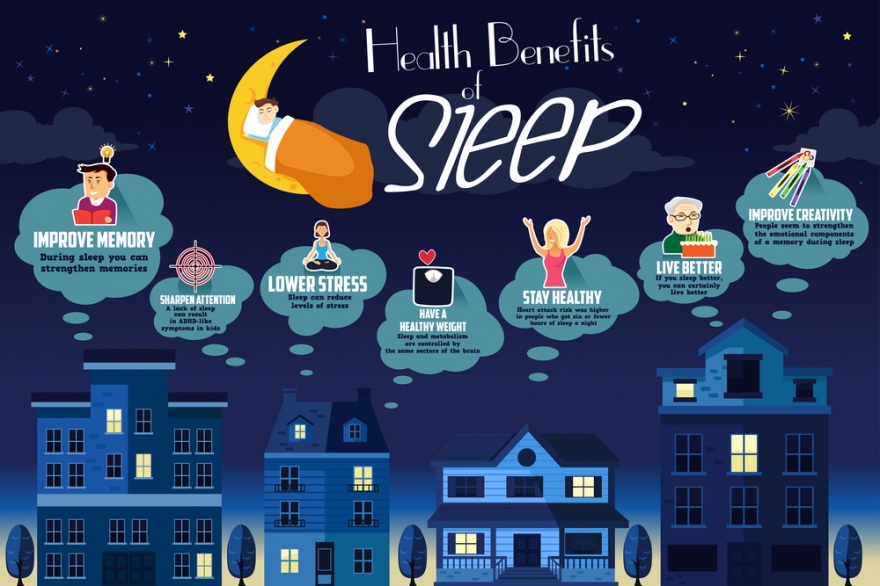|

How Well Are You Sleeping?
Kitty Boitnott, Ph.D., NBCT, RScP
Career Transition & Job Search Coach
I don't know about you, but I love to sleep. I love it at night, and I enjoy the occasional daytime nap. Truth be told, I am one of those people who needs more sleep than the "average."
Funny thing about the idea of what "average" is, though, when it comes to the amount of sleep people need. I recently learned some fascinating new facts about sleep. The number of hours of sleep most adults need isn't as broad as you may have been led to believe. How many times have you heard people say they do great with only 4 to 5 hours of sleep? Well, it turns out they may not be doing as well as they think.
Here is what I learned that I didn't know before. Our brains are the nerve centers for everything that goes on in our lives including the sleep cycle. During the night-time hours when you are asleep, your brain goes into overdrive. It cleans out the protein toxins that build up in the brain during the day. That can only happen, however, when you are in a particular stage of the natural sleep cycle. If you don't get the proper amount of sleep, your brain can't do its job. When the brain can't do its job, you wind up feeling cranky and irritable the next day. More significantly, however, you could also be setting yourself up for memory impairment or Alzheimer's. Those toxins that build up in your brain every day must be flushed out every night in order for you to be clear headed and to keep your memory working as it should well into your old age.
Lack of sleep and poor quality sleep also exacerbates chronic conditions like diabetes, heart disease, and obesity.
Chronic health issues are only one side effect of poor sleep, however. Did you know that in the USA alone, drowsy driving may be the cause of up to 83,000 car accidents and 1000 deaths per year! I sure didn't.
You may be one of those people who thinks you can delay or defer sleep, but you do so at your own risk. Ever heard of Chernobyl, Three Mile Island or the Exxon Valdez? Lack of sleep may have been a contributing factor in those catastrophes.
Do I have your attention yet?
The fact is that sleep is part of the natural rhythm that our bodies experience every 24 hours. It is part of nature's plan for us that we sleep and restore ourselves for the next day. The brain releases certain hormones only while we are sleeping. If we don't go to bed in time to let that cycle set itself up, those hormones don't get released. If those hormones don't get released, we feel "off" all day, but that is only part of the story.
I can hear some of you grumbling already. What to do if you have trouble sleeping at night? What if you go to bed at a decent hour, but you wake up in the middle of the night and can't go back to sleep?
There are many reasons you have trouble sleeping through the night. Are you a pre-, peri-, or menopausal woman? Hormones are the obvious culprit. Are you drinking alcohol late into the evening before bedtime? Are you eating a heavy meal later than you should? Do you have trouble getting the family on a bedtime routine that you stick to every night?
Sleep habits, good sleep hygiene, and bedtime rituals are important to a good night's sleep. We need to sleep deeply enough that it can allow the brain to flush out those dangerous toxins that have built up during the day. Adults need 7-8 hours of sleep each night to feel refreshed and ready for the challenges of a new day. Children need even more to be ready to learn and perform well in school.
Nature is a wonderful thing. Our bodies are regulated by a natural rhythm. Modern technology allows us to ignore that rhythm, however. We can choose to stay up and active well into the evening. We have television, computers, iPads and Smartphones. They all have back-lighting that tricks the brain into thinking that it is daytime. Our need to stay busy keeps our brains stimulated for more hours of the day. As a result, we wind up messing with that natural rhythm that Mother Nature set up for us.
I invite you to consider if you are getting the sleep you need. Also, consider if the sleep you are getting is the quality and in the quantity that you need for your best health. If not, think about developing a sleep ritual at night that will promote deeper sleep. What you have to gain will definitely be worth it. You will wake up feeling rested and refreshed and in the mood to tackle the challenges of the day. Observe your body's natural rhythms. You will be glad you did.
Until next time.
Photos by Depositphotos.com
|